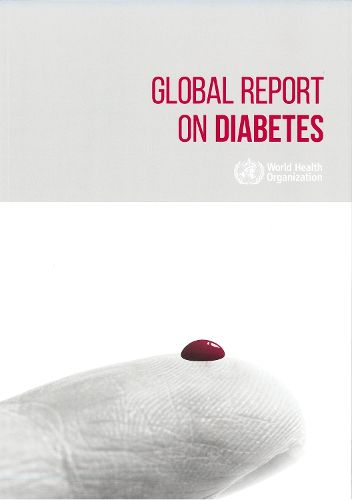Readings Newsletter
Become a Readings Member to make your shopping experience even easier.
Sign in or sign up for free!
You’re not far away from qualifying for FREE standard shipping within Australia
You’ve qualified for FREE standard shipping within Australia
The cart is loading…






This first WHO Global report on diabetes underscores the enormous scale of the diabetes problem, and also the potential to reverse current trends. The political basis for concerted action to address diabetes is there, woven into the Sustainable Development Goals, the United Nations Political Declaration on NCDs, and the WHO NCD Global Action Plan. Where built upon, these foundations will catalyse action by all. Countries can take a series of actions, in line with the objectives of the WHO NCD Global Action Plan 2013-2020, to reduce the impact of diabetes: (1) Establish national mechanisms such as high-level multisectoral commissions to ensure political commitment, resource allocation, effective leadership and advocacy for an integrated NCD response, with specific attention to diabetes; (2) Build the capacity of ministries of health to exercise a strategic leadership role, engaging stakeholders across sectors and society; (3) Prioritize actions to prevent people becoming overweight and obese, beginning before birth and in early childhood; (4) Strengthen the health system response to NCDs, including diabetes, particularly at primary-care level; (5) Address key gaps in the diabetes knowledge base; (6) Strengthen national capacity to collect, analyse and use representative data on the burden and trends of diabetes and its key risk factors. There are no simple solutions for addressing diabetes but coordinated, multicomponent intervention can make a significant difference. Everyone can play a role in reducing the impact of all forms of diabetes. Governments, health-care providers, people with diabetes, civil society, food producers and manufacturers and suppliers of medicines and technology are all stakeholders. Collectively, they can make a significant contribution to halt the rise in diabetes and improve the lives of those living with the disease.
$9.00 standard shipping within Australia
FREE standard shipping within Australia for orders over $100.00
Express & International shipping calculated at checkout
This first WHO Global report on diabetes underscores the enormous scale of the diabetes problem, and also the potential to reverse current trends. The political basis for concerted action to address diabetes is there, woven into the Sustainable Development Goals, the United Nations Political Declaration on NCDs, and the WHO NCD Global Action Plan. Where built upon, these foundations will catalyse action by all. Countries can take a series of actions, in line with the objectives of the WHO NCD Global Action Plan 2013-2020, to reduce the impact of diabetes: (1) Establish national mechanisms such as high-level multisectoral commissions to ensure political commitment, resource allocation, effective leadership and advocacy for an integrated NCD response, with specific attention to diabetes; (2) Build the capacity of ministries of health to exercise a strategic leadership role, engaging stakeholders across sectors and society; (3) Prioritize actions to prevent people becoming overweight and obese, beginning before birth and in early childhood; (4) Strengthen the health system response to NCDs, including diabetes, particularly at primary-care level; (5) Address key gaps in the diabetes knowledge base; (6) Strengthen national capacity to collect, analyse and use representative data on the burden and trends of diabetes and its key risk factors. There are no simple solutions for addressing diabetes but coordinated, multicomponent intervention can make a significant difference. Everyone can play a role in reducing the impact of all forms of diabetes. Governments, health-care providers, people with diabetes, civil society, food producers and manufacturers and suppliers of medicines and technology are all stakeholders. Collectively, they can make a significant contribution to halt the rise in diabetes and improve the lives of those living with the disease.